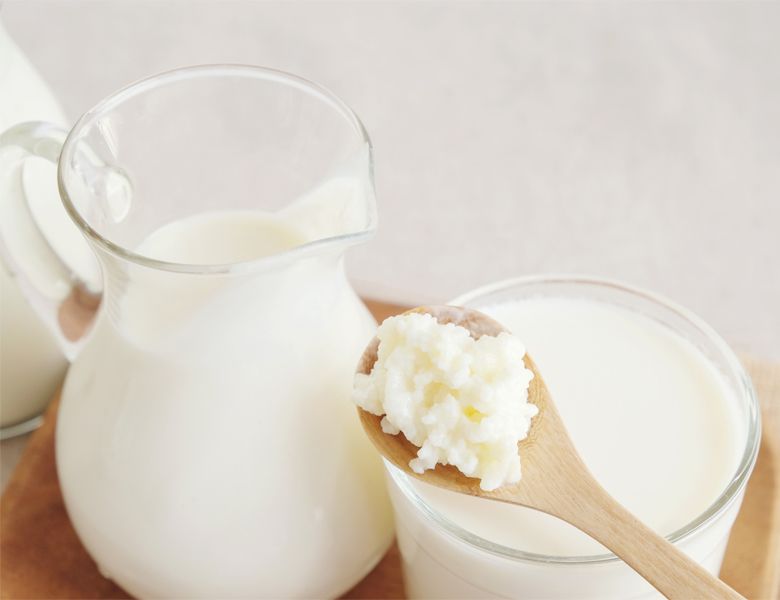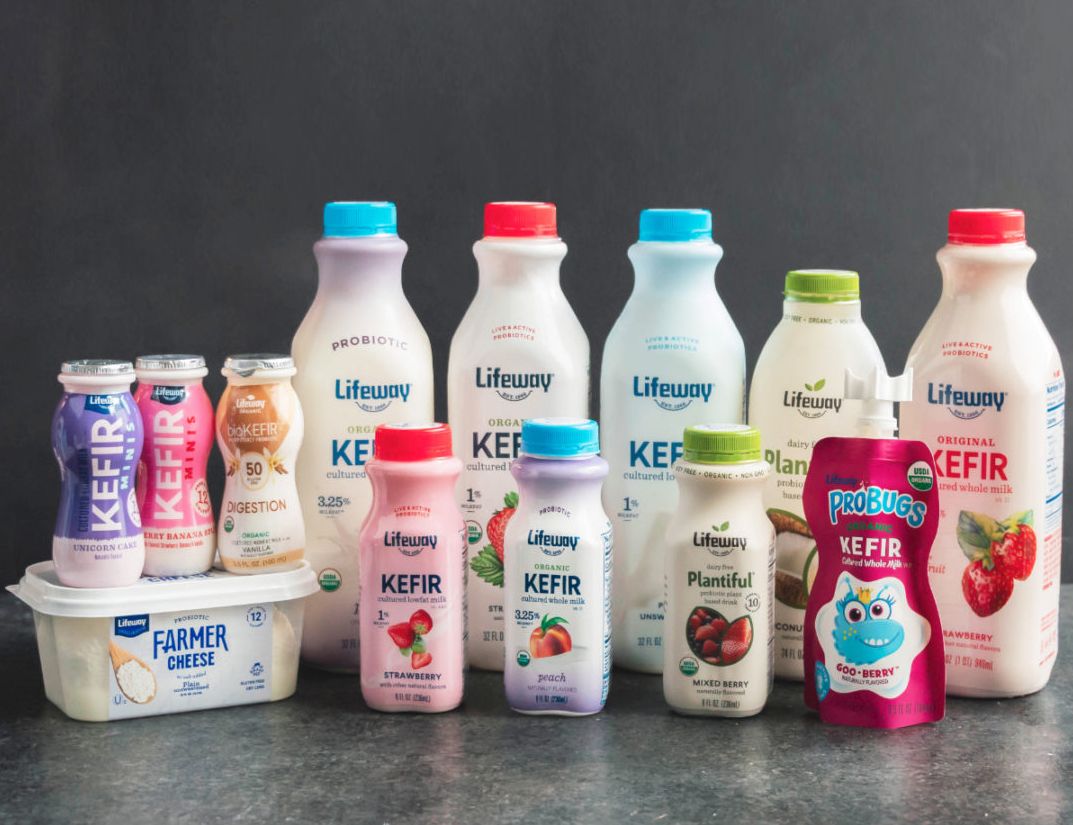9 Benefits of drinking kefir

- | آتاماد |
- Viewer: 591
Kefir is a staple food in many cultures around the world, which has become incredibly popular in the health sector. This drink is rich in nutrients and probiotics and is very useful for digestion and intestinal health. In fact, many people consider it more nutritious than yogurt.
Why should we drink kefir?
1) Kefir is an excellent source of many nutrients
The origin of kefir is parts of Eastern Europe and Southwest Asia. Its name is derived from the Turkish word "keyif", which refers to a good feeling after a meal. Kefir is traditionally made with cow's or goat's milk.
In approximately 24 hours, the microorganisms in the kefir grains multiply and turn into kefir by breaking down the sugars in the milk. Then the seeds can be removed from the liquid and reused. In other words, kefir is a beverage, but kefir grains are the starter cultures used to produce it. Lactic acid bacteria convert milk lactose into lactic acid. This is what makes kefir sour like yogurt - but thinner.
A cup of low-fat kefir contains the following ingredients:
Protein: 9 grams
Calcium: 24% of the daily DV
Phosphorus: 20 percent DV
Vitamin B12: 29% of the DV
Riboflavin (B2): 25 percent DV
Magnesium: 7 percent DV
Vitamin D: 12% of the DV
In addition to the above, kefir has about 104 calories, 11.6 grams of carbohydrates and 2 to 3 grams of fat, depending on the type of milk consumed.
Other benefits of kefir include the fact that kefir contains a wide range of biologically active compounds, including organic acids and peptides that are very useful for the body.
2) Kefir is a stronger probiotic than yogurt
Some microorganisms known as probiotics can have beneficial effects on health. In addition, they help with digestion, weight management, and mental health. Yogurt is the most well-known probiotic food in the Western diet, while kefir is actually a much stronger source.
Kefir grains contain 61 strains of bacteria and yeast, making them a very rich and diverse source of probiotics. Other fermented dairy products are made from far fewer strains and can be said to contain no yeast at all.
3) Kefir has strong antibacterial properties
Certain probiotics in kefir are believed to protect against infections, including the probiotic Lactobacillus kefir, which is unique to kefir.
Studies show that this probiotic can inhibit the growth of various harmful bacteria, including Helicobacter pylori, Salmonella, and E. coli. Besides that; Kefiran, a type of carbohydrate found in kefir, also has antibacterial properties.
4) Kefir can reduce the risk of osteoporosis
Osteoporosis is characterized by the deterioration of its tissue and is a major concern in most countries because this disease is especially common among elderly women and thus significantly increases the risk of fractures.
One of the most effective ways to improve bone health and slow the progression of osteoporosis is; Make sure you get enough calcium. Full-fat kefir is not only a good source of calcium but also contains vitamin K2, which plays a major role in calcium metabolism. It has been shown in the research that K2 supplement reduces the risk of fractures by 81%.
5) Kefir may provide immunity against cancer
Cancer is one of the leading causes of death in the world and can be said to occur when abnormal cells in the body grow uncontrollably, such as a tumor. It is believed that probiotics in fermented dairy products reduce tumor growth by stimulating the body's immune system. Therefore, this theory can be true that kefir fights cancer.
A study on the preservation of kefir showed that kefir extract reduced the number of human breast cancer cells by 56%, compared to an estimated 14% for yogurt. Of course, this claim needs more studies.
6) Kefir probiotics may help with a variety of digestive problems
Probiotics such as kefir can help restore the balance of beneficial gut bacteria. For this reason, they can be effective in treating many types of diarrheas. In addition, a large body of evidence shows that probiotics and probiotic foods have the ability to alleviate many digestive disorders.
7) Kefir has a small amount of lactose
as you know; Dairy products usually contain a natural sugar called lactose. Many people, especially adults, are unable to break down and digest this sugar, which is called lactose intolerance.
In fermented dairy foods—such as kefir and yogurt—lactic acid bacteria convert the lactose in milk into lactic acid, so these foods are much lower in lactose than milk. They also contain enzymes capable of further breaking down lactose. This is why kefir is usually well tolerated by people with lactose intolerance, at least compared to regular milk.
8) Kefir may improve asthma and allergy symptoms
Allergic reactions are caused by inflammatory responses to foods or a series of specific substances. People with oversensitive immune systems are more prone to allergies, which can trigger conditions like asthma. In animal studies, kefir has been shown to suppress inflammatory responses related to asthma and allergies. Human studies are needed to better investigate these effects.
9) Kefir is easily prepared at home
If you're not sure about the quality of store-bought kefir, it's easy to make at home with fresh fruit. Kefir grains are available in some grocery stores. Keep in mind that kefir grains are different for dairy than for non-dairy beverages.
Reference:
GET IN TOUCH
Copyright © 2023 Atamad.com All right reserved
Website design and SEO services by Seohama team – Web hosting by Sarverhama
Copyright © 2023 Atamad.com All right reserved
Website design and SEO services by Seohama team – Web hosting by Sarverhama








